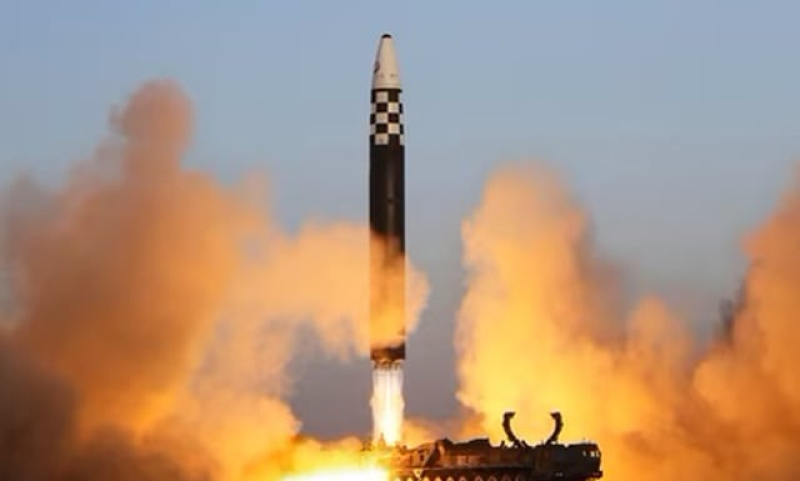- Tarique visits National Martyrs’ Memorial, pays homage to martyrs |
- Muslim League leads new electoral alliance, Jatiya Muslim Jote |
- Tk 500cr Drive to Turn Haor Fallow Land Into Farmland |
- Tarique Rahman returns home amid rapturous reception |
- Home After 17 Years: Tarique Returns to Gulshan Residence |
N. Korea fires several cruise missiles: Seoul military

(BSS/AFP) - North Korea fired several cruise missiles on Sunday, Seoul's military said, the latest in a series of tension-raising moves by the nuclear-armed state.
The launch comes just days after Pyongyang fired multiple cruise missiles toward the Yellow Sea, which it said was a first test of a new generation of strategic cruise missiles.
Pyongyang has accelerated weapons testing in the new year, including tests of what it called an "underwater nuclear weapon system" and a solid-fuelled hypersonic ballistic missile.
"Our military detected several unidentified cruise missiles fired near waters around North Korea's Sinpo area at 8:00 am (2300 GMT) today," the Joint Chiefs of Staff said in a statement.
The JCS said the launch was under analysis by South Korean and US intelligence authorities, adding it was "closely monitoring North Korea's additional movements and activities."
Unlike their ballistic counterparts, the testing of cruise missiles is not banned under current UN sanctions against Pyongyang.
Cruise missiles tend to be jet-propelled and fly at a lower altitude than more sophisticated ballistic missiles, making them harder to detect and intercept.
On Thursday, North Korea said it had carried out its first test of a new generation of strategic cruise missiles it is developing, the Pulhwasal-3-31 a day earlier.
The test was "a process of constant updating of the weapon system and a regular and obligatory activity," the state news agency KCNA said. It did not specify how many missiles were fired.
"The test-fire had no impact on the security of neighboring countries and has nothing to do with the regional situation," the agency said. - Deteriorating ties -
Recent months have seen a sharp deterioration in ties between the two Koreas, with both sides jettisoning key tension-reducing agreements, ramping up frontier security, and conducting live-fire drills along the border.
Earlier this month, North Korean leader Kim Jong Un declared the South his country's "principal enemy", jettisoned agencies dedicated to reunification and outreach and threatened war over "even 0.001 mm" of territorial infringement.
In Seoul, President Yoon Suk Yeol told his cabinet that should the nuclear-armed North carry out a provocation, South Korea would hit back with a response "multiple times stronger", pointing to his military's "overwhelming response capabilities".
At Pyongyang's year-end policy meetings, Kim threatened a nuclear attack on the South and called for a build-up of his country's military arsenal ahead of armed conflict he warned could "break out any time".
In January, the North launched a solid-fuel hypersonic missile, just days after Pyongyang staged live-fire exercises near the country's tense maritime border with South Korea, which prompted counter-exercises and evacuation orders for some border islands belonging to the South.
Kim also successfully put a spy satellite into orbit late last year, after receiving what Seoul said was Russian help, in exchange for arms transfers for Moscow's war in Ukraine.

